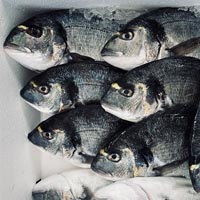Medicinal herbs: The missing link to sustainable aquaculture

All claims expressed in this article are solely those of the authors and do not necessarily represent those of their affiliated organizations, or those of the publisher, the editors and the reviewers. Any product that may be evaluated in this article or claim that may be made by its manufacturer is not guaranteed or endorsed by the publisher.
Authors
Aquaculture, given its direct role in the human diet, mandates strict quality assurance and health protocols. Healthy fish require a strong immune system to defend themselves from a broad spectrum of pathogens such as bacteria, viruses, and parasites. Stimulating the immune system is a prevalent measure taken to ensure satisfactory immune response and disease control. Measures against disease outbreaks are available, such as chemoprophylaxis with vaccines, chemical therapeutics, and antibiotics. All of which, alongside their benefits, pose certain risks to the fish’s habitat and itself. Natural substances extracted from herbs or their parts (roots, leaves, etc) tend to be the most effective therapeutics with the least adverse effects. In this study, natural remedies have been discussed as a potent method of preventive care in aquaculture.
How to Cite
PAGEPress has chosen to apply the Creative Commons Attribution NonCommercial 4.0 International License (CC BY-NC 4.0) to all manuscripts to be published.
Similar Articles
- Saman Yousefi, Thyme: A natural preservative for seafood , Infectious Diseases and Herbal Medicine: Vol. 3 (2022)
You may also start an advanced similarity search for this article.





